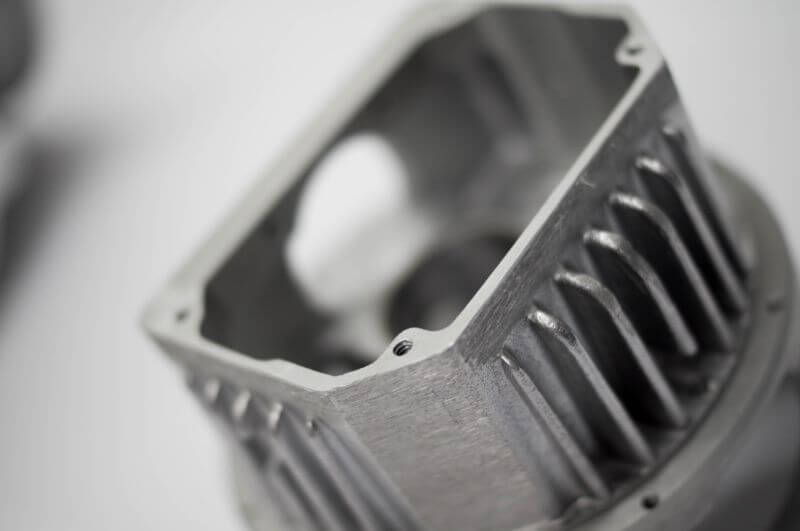Published - 29th Aug 2024

Optimising the performance of aluminium-silicon alloys
Grain refining and grain modification are important in producing the optimum sand casting for your requirements. Understanding and controlling grain structure is crucial in metal manufacturing to achieve the desired mechanical properties and ensure the quality and performance of the final product.
So, what exactly is the grain, and how can this be changed to improve the performance of metal in sand castings?
In this blog, we’ll look at the importance of grain refining and modification in casting aluminium silicon alloys.
The size and structure of grains significantly affect the metal’s strength and ductility. For example, finer grains create a tighter and more uniform structure, reducing the chance of porosity that can cause cracks in the casting. Controlling grain size can therefore play an important role in achieving the desired mechanical properties of your casting, ensuring the quality and performance of your final product.
By implementing grain refinement techniques, Haworth Castings can significantly improve the quality and performance of our cast products for demanding industries, including for performance-critical applications such as Defence and Aerospace.
Aluminium is commonly alloyed with silicon for ease of casting. This is because it increases the fluidity of the melt, reduces the melting temperature, decreases the contraction associated with solidification and is a cost-effective raw material. Silicon also has a low density, which may be an advantage in reducing the overall weight of the cast component. Silicon has a very low solubility in aluminium, so it precipitates as virtually pure silicon, which is hard and therefore improves the abrasion resistance.
Aluminium-silicon alloys (Al-Si alloys) are critical in many applications due to their excellent castability, corrosion resistance and mechanical properties. However, the inherent microstructure of these alloys can limit their performance. This is where effective grain refining and modification help, providing significant benefits that elevate the quality and capabilities of Al-Si castings.
There are two principal ways to enhance the performance of the metal alloy in Al-Si castings: grain refining and grain modification.
Grain refinement promotes the growth of finer grains, which merge more tightly to form a more homogeneous microstructure.
Grains size can be refined by introducing nucleating agents such as Titanium and Boron into the molten alloy to promote fine, uniformly distributed nucleation points.
Grain refinement can also be achieved through controlling the cooling rate of the alloy. Thermal grain refinement through rapid cooling results in the growth of finer grains.
Grains can also be modified by adding certain elements or compounds which transform the coarse, plate-like silicon structures in the Al-Si alloy into fine, fibrous forms. This change enhances the alloy’s mechanical properties and overall performance.
(1) Improved mechanical properties
(2) Enhanced castability and machinability
(3) Optimised thermal and electrical conductivity
(4) Corrosion resistance and durability
(5) Cost efficiency and sustainability
Effective grain refining and grain modification of aluminium-silicon alloys present numerous advantages that extend beyond improved mechanical properties. By optimising the microstructure of the Al-Si metal alloy we can achieve superior castability, enhanced durability and greater cost efficiency. These benefits not only elevate the performance of Al-Si castings but also contribute to the broader goals of sustainability and innovation in the foundry industry.
Please get in touch to find out how Haworth Castings can optimise the manufacture and performance of your components.
If you have a project, talk to our experienced sales team
Contact us